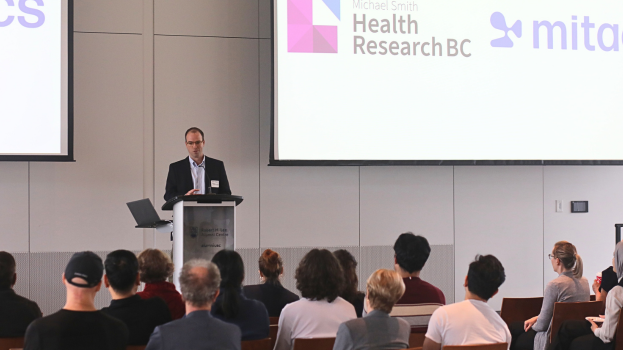Dr. Davina Banner-Lukaris shares the joy and heartbreak of engaging people with lived experience
9 October 2024

Q: Can you share a little about yourself and your work?
I’m a professor at the University of Northern British Columbia. I’m a patient-oriented researcher, my work is patient-driven and, at times, patient-led. A lot of my research addresses chronic diseases and complex health issues, such as cardiovascular health. I also explore methods and practices of engagement in research.
In the north, I’ve partnered with community members, patient organizations, and people with lived experience of health issues. This allows me to engage people in local clinical research, as well as wider national and international initiatives. I am a passionate advocate for the voice of patients and community members and see the impact that this can have on health care and research.
Q: How did you get interested in patient-oriented research?
First, I was a health care provider. Academia came as an unexpected second career. My research already focused on the provider and patient experience. When Canada’s Strategy for Patient-Oriented Research came out, it connected the dots for me. Canada went in a direction that really solidified the need for meaningful partnership and authentic engagement. I was excited to challenge the traditional assumptions around research. We were taught that we’d shape research start to finish. Instead, the strategy shifted what it meant to partner and collaborate with others.
Researchers need to become comfortable in a co-leadership space. In practice, researchers may be less keen to adopt new approaches, despite wanting people with lived experience on the research team.
To do things differently, we must take a leap of faith and avoid tokenistic, low-level engagement. To be deeply engaged and explicitly committed to research guided by people with lived experience takes trust and accountability. I love it. I find myself in positions and places where I never thought I would be.
Q: How did the BC SUPPORT Unit influence your journey?
Patient partnership has to be done carefully and in the right way. In the early days, I was looking for more guidance around this. The BC SUPPORT Unit established frameworks that made working with patient partners much clearer. These connections made for a natural alignment with my past work. Although being a patient-oriented researcher is not the easy route, it’s the most rewarding. I’ve been changed on a personal and professional level through partnerships with patients. These partnerships made research outcomes more impactful and relevant as a result.
Q: How many people did your work in patient-oriented research involve?
I have had the great privilege of working with many people over the years, and I continue to be part of many teams. I believe strongly in supporting engagement of diverse partners and I actively mentor and support others. As part of the Canadian Heart Function Alliance, I co-lead the Patient Engagement and Empowerment Platform with Marc Bains, a person with lived experience of heart failure and transplant. We have partnered with multiple national networks, including CANTRAIN. We have also advanced methods of engagement, spearheaded patient-oriented research across clinical research and trials, and supported the development of trainees and new researchers.
Many trainees don’t feel prepared to engage people with lived experience, but they’ve got the will. We need to consider more integration of these approaches in graduate training or training of highly qualified personnel. But that still takes that mentorship and available support.
It’s hard when you’re starting out and your research program is growing to provide a good, authentic and meaningful engagement – it takes time. Having access to mentorship, support, and training can really help.
Q: What surprised you most about working with people with lived and living experience?
I think the beauty and depths of the relationships you build are amazing. That surprised me. You work so closely with people, you become colleagues, you become friends, you then become family.
But there’s hard things that can come with that. With complex health conditions, people deteriorate, experience health crises. That’s the emotional reality of these partnerships.
Patient partnerships humanize the research process. When a patient partner shares their experiences, we all become patients. It changes the lens – it changes it all. There’s just a different level of insight that’s achieved.
Q: What is the one thing you’d want people reading this story to know?
Take the leap of faith. Show up as your whole self and really grasp the opportunity for an authentic relationship. Jump in with an open mind and heart. Be prepared to learn together and release the idea that you have to be in control of everything. Reframing your focus to co-learning and working in service of others is illuminating. It’s such an opportunity for personal and professional growth.
Dr. Davina Banner-Lukaris is a professor and interim associate vice president research operations at the University of Northern British Columbia. She leads an interdisciplinary program of research that is focused on cardiovascular and rural health. Her work advances the science and practice of integrated knowledge translation and patient-oriented research.
The BC SUPPORT Unit is a provincial initiative that moves evidence developed with patients and communities into practice. We provide services to researchers, patients, policy-makers, clinicians and health system leaders.
This story is the third in a series of conversations with BC leaders in patient-oriented research methods. Learn about this work.





